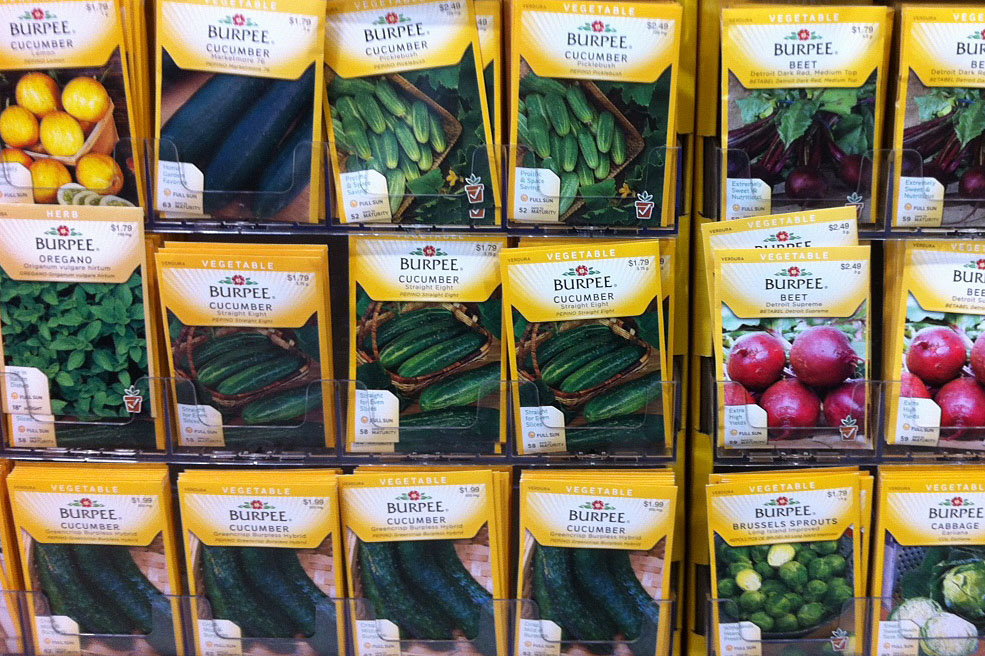Seed starting reaps great benefits
Cabin fever? We can relate. Nothing has us pining for springtime like February in Baltimore.
Fortunately, frustrated gardeners can find hope and inspiration from those gorgeous gardening catalogs that arrive in their mailboxes right around this time of year. In fact, February is the perfect time to create a spring gardening plan.
Some seeds can be started indoors and transplanted later, while other seeds must be planted directly into your garden when the weather warms. Read on to learn all you need to know.
After all, spring will be here before you know it!
Select Seeds
Gardening catalogs aren’t just a feast for the eyes. They’re also full of critical information such as:
- optimal soil temperatures
- disease/pest susceptibility
- days to maturity
- productivity
- fruit or vegetable varieties
- instructions for seed planting
These facts will help you determine which seeds will grow best in your garden.
Swap Seeds
Joining a seed bank or a group of gardening friends who are willing to share seeds can save money. Most seed packs are packaged from 15 seeds for heirloom tomatoes and as many as 250 seeds for summer squash. There are plenty of seeds to share with friends.
Sort Seeds
Determine which seeds can be started indoors versus which must be planted outdoors and separate them accordingly.
Start Seeds Indoors
Follow directions on seed packets carefully to create an environment in which seeds can thrive. Seed starting kits and grow lights help with the indoor germination process. To start seeds for tomatoes, eggplant and peppers germinate them indoors with soil media at around 75 to 80 degrees under grow lights.
Create Schedules for Indoor Seed Starting and Transplanting
When it comes to gardening, timing is everything. Determine when seeds started indoors should be transplanted to the outdoors by estimating when the last frost of the season is likely to occur. The time from germination to a healthy transplant is approximately two months. So seeds started April 1 should be transplanted around June 1.
A couple of weeks before the seedlings are transplanted into your garden, they should be exposed to the outdoor elements by setting them outside for several hours each day. This process is called “hardening off” or gaining exposure to the wind, temperature and sunshine to make them stronger.
Indoor seedlings generally need to be re-potted in a larger container once three or four of their leaves appear.
Create Schedule to Plant Seeds Directly in Garden (Direct sown):
- Swiss chard, kale and mustard greens are sown directly into moist, well-prepared soil around mid-April.
- Cucumbers, summer squash and okra are sown directly into well-prepared organically enriched soil around mid-June.
- Herbs such as basil, parsley and cilantro and annuals such as marigolds, zinnias and cosmos are easily germinated when sown directly into moistened potting soil. Plant new seeds every three weeks to maintain a continuous crop.
- Seedlings must be thinned out on a regular basis to leave room for the plant to reach maximum growth.
Store Unused Seeds
Save extra seeds by keeping them in their original packaging in a dry glass container with a lid in a cool, dark basement. Many seeds (except lettuce and spinach, which can only be used the year of purchase) can last quite a few years.
Keep a Detailed Seed Journal
Record the following information for future use
- Type of seed started
- Date seeds are sown
- Date of germination
- Date transplanted
- Date of harvest
- Pests/disease susceptibility
- Seed characteristics or reflections.
So during these dog days of winter start imagining your spring garden! Planning and proactive seed starting will result in outstanding benefits all season long!
Rebecca Brown began her career as a horticulturist over 25 years ago and studied at the New York Botanical Gardens. She has been a University of Maryland Extension Baltimore County Master Gardener for three years and is a backyard beekeeper.
Norman Cohen is a retired chemist. He has been gardening for 38 years and has been a University of Maryland Baltimore County Master Gardener for nine years. Cohen also provides gardening education to the public at local farmers markets.





